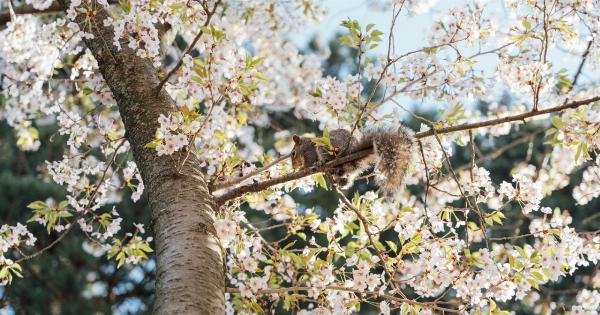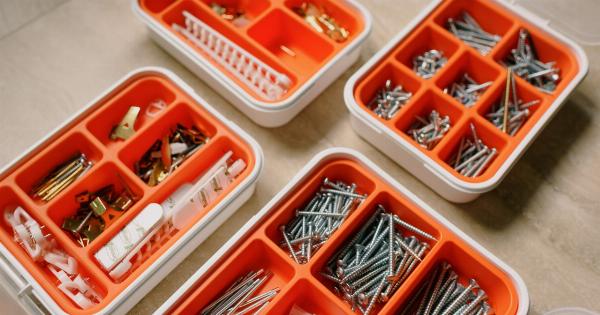As the weather starts to warm up and flowers start to bloom, many individuals find themselves struggling with the onset of spring allergies.
Pollen, mold spores, and other common allergens can wreak havoc on your respiratory system, leaving you feeling miserable. Fortunately, there are several expert tips and strategies that can help ease your spring allergies and allow you to enjoy the beauty of the season.
Read on to discover effective methods for managing and preventing allergic reactions during this time of year.
1. Keep an Eye on Pollen Counts
Monitoring daily pollen counts can provide valuable information about the levels of allergens in the air. On days when pollen counts are high, it’s best to limit your outdoor activities and stay indoors as much as possible.
Make use of various weather apps, websites, or local news reports to stay informed about pollen forecasts in your area. By being aware of the pollen levels, you can plan your outdoor activities accordingly to minimize exposure and potential allergic reactions.
2. Wear Protective Clothing
When you do go outside during high pollen days, it’s important to take precautions to minimize contact with allergens.
Wearing sunglasses can help protect your eyes from pollen, and wide-brimmed hats can prevent pollen from settling onto your hair and face. Additionally, wearing long-sleeved shirts and pants can provide an extra layer of defense against allergens.
3. Keep Windows Closed
Although it’s tempting to let fresh air into your home, keeping windows closed during peak allergy season can significantly reduce allergen exposure.
Use air conditioning to cool your home instead, ensuring the filters are clean and in good working condition. This creates a barrier between your indoor space and outdoor allergens, providing you with a clean and comfortable environment.
4. Clean Your Home Regularly
Regular cleaning is essential to keep allergens at bay. Vacuum carpets, curtains, and upholstery regularly using a vacuum cleaner equipped with a HEPA filter, as this type of filter can trap even the most minuscule pollen particles.
Dust surfaces with a damp cloth to prevent allergens from becoming airborne. Additionally, washing bedding and pillowcases frequently in hot water can help eliminate allergens that may have accumulated.
5. Use High-Quality Air Purifiers
Investing in a high-quality air purifier can help improve indoor air quality and reduce allergens. Look for purifiers that utilize HEPA filters and have a high Clean Air Delivery Rate (CADR).
Place the purifiers in commonly used areas, such as living rooms and bedrooms, for optimal effectiveness.
6. Rinse Your Sinuses
Rinsing your sinuses with saline solution can help flush out allergens and relieve nasal congestion. Use a neti pot or a squeeze bottle specially designed for nasal irrigation.
Ensure the water used is distilled or properly sanitized to avoid potential infections. Consult with your healthcare professional for guidance on the proper technique and frequency of use.
7. Use Nasal Sprays and Eye Drops
Over-the-counter nasal sprays and eye drops can provide temporary relief from allergy symptoms. These medications work by reducing inflammation and limiting the release of histamines, which are responsible for the allergic response.
However, it’s important to use them as directed and consult with a healthcare professional if symptoms persist or worsen.
8. Minimize Contact with Pets
Pets can unknowingly bring pollen indoors, exacerbating your spring allergies. Brushing your pets outside and wiping them down before letting them inside can help reduce the amount of pollen they bring in.
Additionally, avoiding direct contact with your pets during peak allergy season can help minimize symptoms.
9. Stay Hydrated
Staying hydrated can thin mucus secretions and alleviate congestion. Increase your fluid intake by drinking plenty of water, herbal teas, and clear broths. Avoid beverages that can worsen dehydration, such as caffeinated and alcoholic drinks.
Keeping your body hydrated can help lessen the severity of spring allergy symptoms.
10. Consult with an Allergist
If your spring allergies severely impact your quality of life or if over-the-counter medications fail to provide relief, it may be time to consult with an allergist.
Allergists can perform comprehensive tests to identify specific allergens that trigger your symptoms. They can then recommend personalized treatment options, such as allergy shots or prescription medications, to help manage your allergies effectively.
In Conclusion
Spring allergies can be a nuisance, but with the right strategies, you can minimize their impact on your daily life.
By staying informed about pollen counts, protecting yourself when outdoors, keeping your home clean, and seeking appropriate medical advice, you can enjoy the beauty of spring without the unwanted allergy symptoms. Implement these expert tips and say goodbye to the sniffles, sneezing, and watery eyes that often accompany this time of year.































